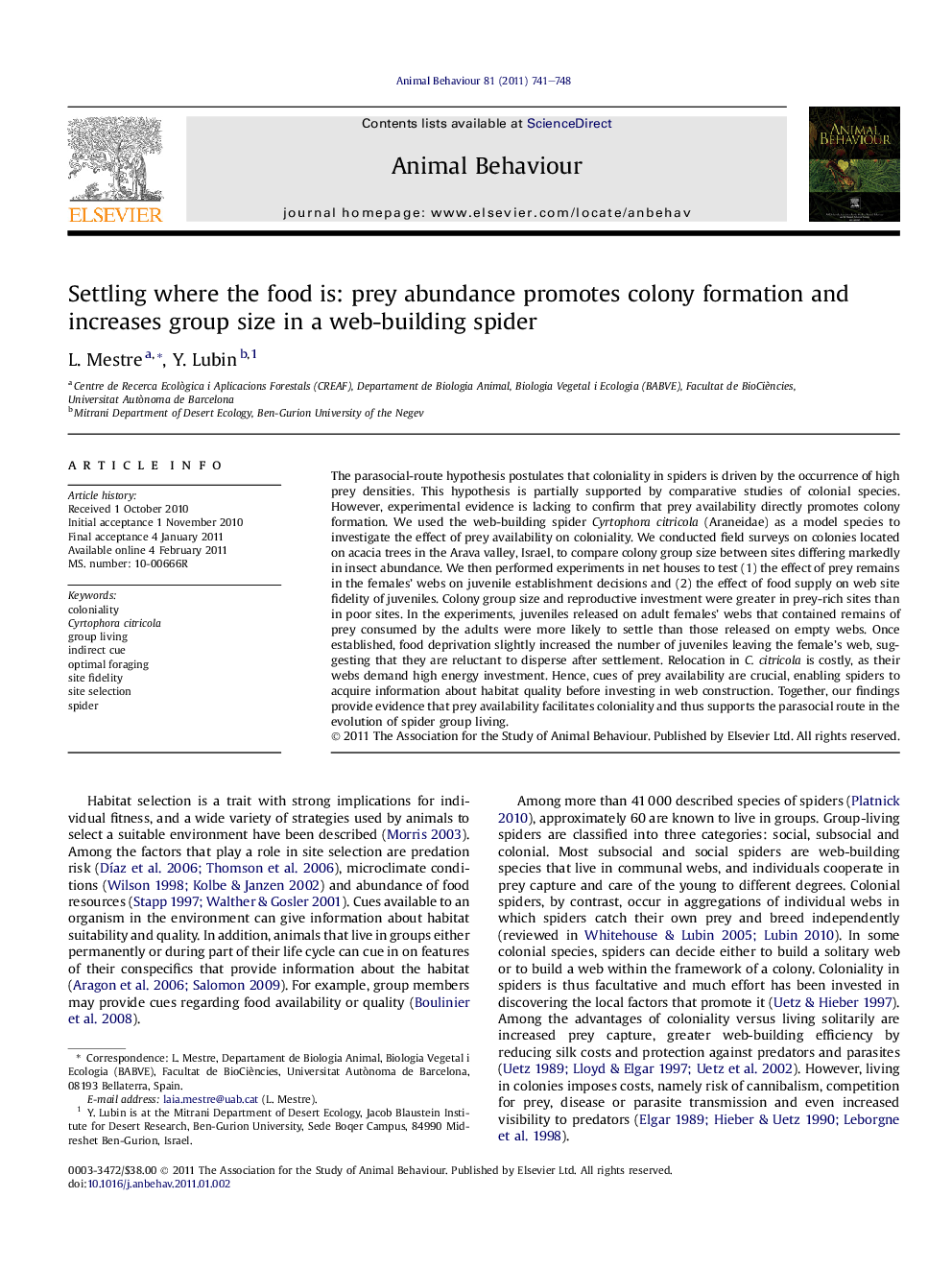| کد مقاله | کد نشریه | سال انتشار | مقاله انگلیسی | نسخه تمام متن |
|---|---|---|---|---|
| 2417081 | 1104307 | 2011 | 8 صفحه PDF | دانلود رایگان |

The parasocial-route hypothesis postulates that coloniality in spiders is driven by the occurrence of high prey densities. This hypothesis is partially supported by comparative studies of colonial species. However, experimental evidence is lacking to confirm that prey availability directly promotes colony formation. We used the web-building spider Cyrtophora citricola (Araneidae) as a model species to investigate the effect of prey availability on coloniality. We conducted field surveys on colonies located on acacia trees in the Arava valley, Israel, to compare colony group size between sites differing markedly in insect abundance. We then performed experiments in net houses to test (1) the effect of prey remains in the females’ webs on juvenile establishment decisions and (2) the effect of food supply on web site fidelity of juveniles. Colony group size and reproductive investment were greater in prey-rich sites than in poor sites. In the experiments, juveniles released on adult females’ webs that contained remains of prey consumed by the adults were more likely to settle than those released on empty webs. Once established, food deprivation slightly increased the number of juveniles leaving the female’s web, suggesting that they are reluctant to disperse after settlement. Relocation in C. citricola is costly, as their webs demand high energy investment. Hence, cues of prey availability are crucial, enabling spiders to acquire information about habitat quality before investing in web construction. Together, our findings provide evidence that prey availability facilitates coloniality and thus supports the parasocial route in the evolution of spider group living.
Journal: Animal Behaviour - Volume 81, Issue 4, April 2011, Pages 741–748